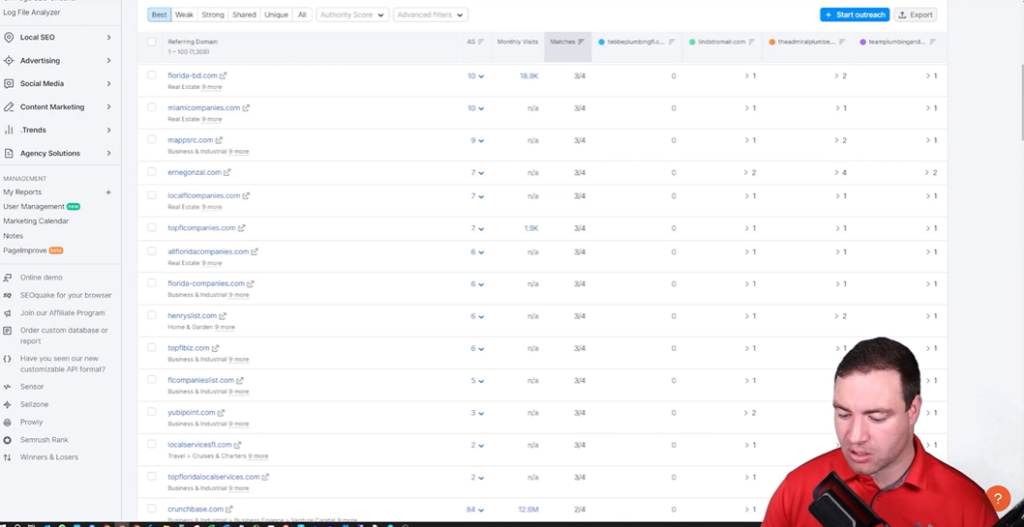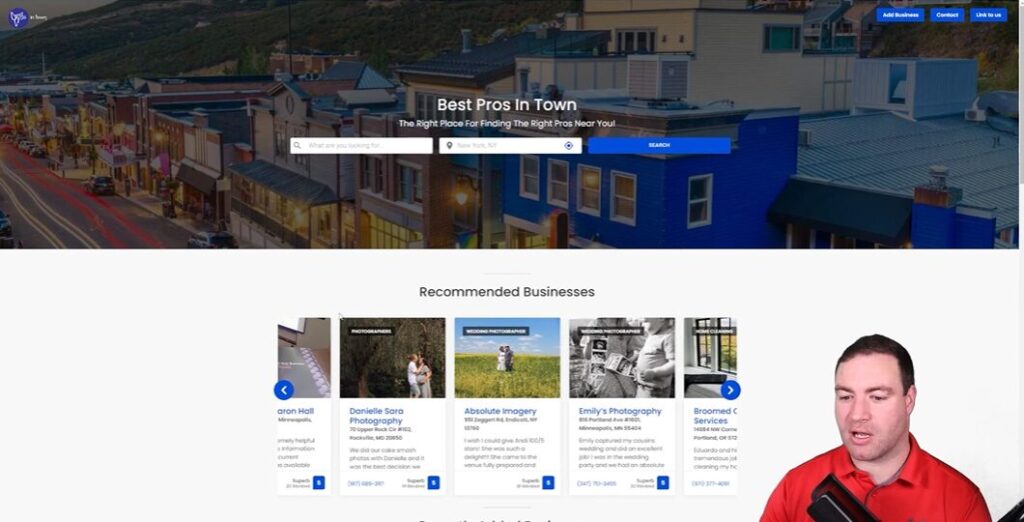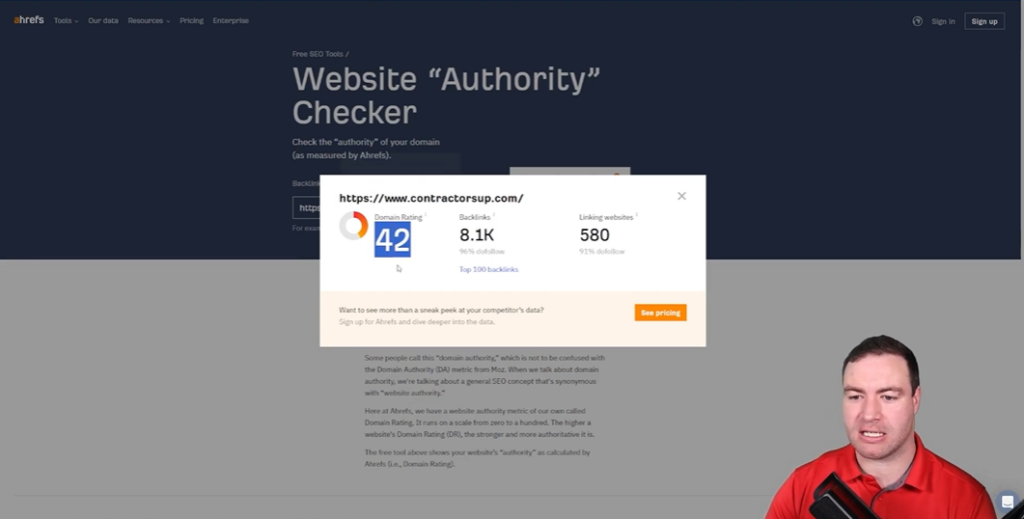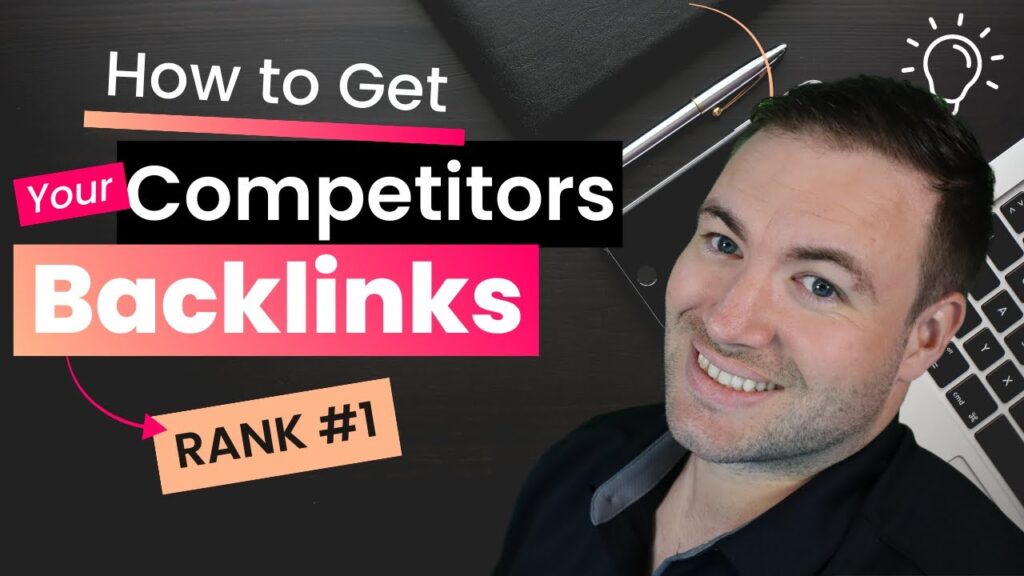Have you ever felt like you’re running a race only to discover that your competitors have a head start? That’s how I felt when I noticed some of my rivals were climbing to the top of search results while I was left in the dust. After a lot of trial and error, I discovered a method to close that backlink gap and gain an edge. Let me take you on this journey of backlink discovery like no other!
TL;DR: Learn how to get competitor backlinks and effectively close the backlink gap to boost your website's SEO performance.
Table of Contents
Understanding The Competitor Link Building Gap Analysis
What Is A Backlink Gap Analysis
A backlink gap analysis is a vital tool for any website owner looking to improve their search engine visibility. But what does this term really mean?
Simply put, it’s a method of comparing your backlink profile - the links pointing to your site - with that of your competitors. As I dive into this process, I often discover gaps: backlinks my competitors have that I don’t. Identifying these gaps reveals opportunities for growth.
Think of it like this: imagine you're running in a race, but your competitors have better shoes. Those shoes in this analogy are their backlinks. If you can find and acquire similar shoes, or backlinks, you can run faster in the race for greater traffic. Pretty powerful, right?
Importance Of Competitor Backlink Analysis In SEO
Why should we bother with competitor backlink analysis? Well, backlinks are a major determining factor in how search engines like Google evaluate and rank websites. When you analyze your competitors, you uncover their strategies.
- Gain Insights: You gain insights into what works in your niche.
- Spot Trends: You can spot emerging trends in your industry.
- Informed Decisions: It helps make informed link-building decisions.
As I’ve learned, backlinks are like votes of confidence from one website to another. The more quality votes you receive, the better your chances of climbing the search engine rankings.
How Backlinks Influence Search Engine Rankings
Now let’s talk about how backlinks actually influence rankings. Search engines, particularly Google, utilize complex algorithms to determine which pages to show for a given query. Backlinks are a key element in this process.
When high-authority sites link to yours, it signals trust and relevance. Imagine Google is like a teacher grading students. If the popular kids - those high-authority websites - give you their thumbs-up, you’re more likely to get an “A” in search rankings.
Moreover, it’s not just about quantity. The quality of the backlink matters too. A single link from a respected site may hold more weight than multiple links from less credible sources. So, be strategic!
In my experience, conducting a backlink gap analysis can be the game changer in your SEO strategy. By identifying where those gaps lie, we can target specific websites and start closing that competitive gap. Trust me, the payoff can be significant!
Conducting A Competitor Backlink Analysis: Step By Step

Backlink analysis is essential if we want to boost our site's ranking and visibility. This process on how to get competitor backlinks helps us understand what our competitors are doing right and where we might have gaps. Let’s break it down step by step together!
1. Tools For Performing A Backlink Analysis
First off, we need to equip ourselves with the right tools. The right tools can make the entire process smoother. Here are some neat options:
- Ahrefs: This is a powerhouse for backlink information. It shows you who links to your competitors.
- SEMrush: Similar to Ahrefs, it provides detailed insights on backlinks and their anchor texts.
- Majestic: This one focuses more on the quality of backlinks. You’ll want to check the Trust Flow and Citation Flow metrics.
- Google Search Console: Although it isn't as detailed as the others, it's still crucial. This tool can help identify site issues and link profiles.
With these tools, we can dive deep into backlink profiles and identify what we’re missing. There is also a simplified free backlink monitoring tool available. How cool is that?
2. How To Identify Competitor Backlinks
So, how do we identify those backlinks our competitors have? It's surprisingly simple. After entering a competitor's URL into one of our chosen tools, we can generate a backlink report. This report will highlight:
- The domain authority of linking sites.
- Anchor texts used.
- The total number of backlinks.
Seeing which sites link to our competitors is crucial. It gives us insight, and more importantly, a roadmap. If they can get links from those sources, why can't we?
3. Recording Your Findings In A Spreadsheet
Now comes the nitty-gritty: documenting all our findings. I like to use a spreadsheet for this part because it keeps everything organized. Here’s what to record:
- Competitor URLs: Clearly note which competitor links you’re analyzing.
- Backlink Source: Where is the link coming from?
- Domain Authority (DA): This helps determine the value of the link.
- Contact Info: If it’s a directory or a site where we can request a link, note how to reach them.
Using a spreadsheet allows me to visualize my backlinks gap. Trust me, it makes the strategy so much clearer! You can see at a glance what links we need to work on acquiring.
In conclusion, there’s no rocket science here. Just swift moves and organized tactics can close that backlink gap. As we analyze and document properly, we'll find ourselves a lot closer to those ranks we desire.
Strategies To Compete With Your Competitor's Backlinks

When it comes to link building, competition can feel daunting. However, with the right strategies, I believe you can level the playing field. Let’s dive into some effective methods to tackle your competitor's backlinks head-on.
1. Creating A ‘Burner Page’ Strategy
First, let’s talk about the concept of a burner page. This is a quick, less critical page on your website that can handle lower-quality backlinks. Think of it as a safety net for links that you might not want tied directly to your primary business pages.
So, why do I recommend this? If you find a link opportunity that seems less relevant or from a less reputable source, you don’t have to turn it down outright. Instead, direct it to your burner page. This way, you still benefit from the link without compromising your main content.
2. Understanding When To Prioritize Backlink Quality Over Quantity
Now, let’s address the quality vs. quantity debate. While it might be tempting to gather as many backlinks as possible, I’ve learned that it’s crucial to prioritize quality. A single high-quality backlink can often yield better results than ten low-quality ones.
For example, if a competitor gets a link from a high authority site, that link is far more valuable than numerous links from obscure blogs. I suggest regularly auditing your backlink profile to ensure you're focusing on acquiring these high-quality links. Aim for reputable sites with high Domain Authority (DA). It’s worth every effort!
3. Using Past Experiences To Inform Your Link-Building Strategy
Lastly, let’s not overlook the power of past experiences. We all have trial-and-error stories in link building. Reflect on what works and what doesn’t. For example, think back to a previous outreach that generated fantastic results. What did you do right? Did the timing matter? Did your email stand out?
It’s helpful to document these instances. Create a spreadsheet of successful strategies, collaborations, and even what didn’t work. This plays into a powerful principle known as iterative improvement. Each time we learn from our past efforts, we become more adept at acquiring those essential backlinks.
To sum it up, don't underestimate the blend of a burner page, quality-focused strategies, and leveraging past insights to close that competitor backlink gap. It takes effort, but your hard work will pay off in the long run!
What To Do If You Can't Get The Same Backlink As Your Competitor

Alternatives If Your Outreach Fails
So, you’ve done the outreach. You’ve crafted the perfect email pitch, and you hit send, hoping for a response. But then, silence. What do you do? It’s frustrating, to say the least. Rejection is part of the game. But it doesn’t have to be the end of your backlinking efforts. Here are some alternatives:
- Focus on smaller websites: Sometimes, larger websites are inundated with outreach requests. Consider targeting smaller blogs or sites in your niche. They may be more receptive.
- Adjust your pitch: If your current approach isn't working, think about tweaking your message. Maybe make it more personal or highlight your content's unique angle.
- Utilize social media: Engage with these sites on social platforms. Comment on their posts, share their content. Build relationships before asking for a link.
Using Paid Services For Guest Posts
When outreach efforts lead to dead ends, another option is to explore paid services for guest posts. This is a common strategy - one I’ve used before. Here’s how it works:
- You identify relevant blogs that accept guest contributions.
- You pay for a post on their site. This gives you a backlink and can also drive traffic to your site.
It’s essential to choose reputable services. Look for platforms that connect you with high-quality sites. Remember, not all backlinks are created equal. Invest in quality over quantity!
Revisiting Competitor Analysis For New Opportunities
Every time I revisit my competitor analysis, I find potential. It’s like peeking at their playbook. Here’s how you can do it:
- Use tools like Ahrefs or SEMrush to see what sites link to your competitors.
- Identify missing backlinks from your profile. What sites are linking to them but not to you?
- Reach out to these sites! You might just find new opportunities waiting for you.
Don't ignore the power of continual learning. Backlink opportunities are constantly evolving. By keeping an eye on your competitors, you’ll always have fresh ideas.
Final Thoughts: Building A Sustainable Backlink Strategy
As I reflect on the journey of creating our backlink strategy, I can't help but feel optimistic. The world of SEO is ever-changing, and so must we be. Continuous monitoring of competitor backlinks is crucial. It's like keeping an eye on the scoreboard during a football game. You wouldn't want to be caught off-guard when your competitors are scoring big while you're lagging behind.
Stay Ahead With Competitor Monitoring
To effectively close the backlink gap, we need to regularly analyze our competitors. Tools like Ahrefs or Moz can help us track their backlinks. But why stop there? We should also assess the content they're linking to and what strategies are driving traffic their way. Think of it as a treasure hunt where every backlink can unveil more insights.
The Importance Of Adapting Your Strategies
In this digital landscape, standing still is not an option. Simply learning how to get competitor backlinks isn't enough. We must adapt our strategies based on our findings. If our competitors are gaining strength from a niche directory, that’s our cue to jump on those opportunities. Adapting may also mean shifting our content focus, experimenting with new outreach methods, or even tweaking our messaging.
Imagine standing at a crossroads. Do we follow the same path as others, or do we carve out our unique way? I believe in the latter. But to guide our path, we can learn from those who are succeeding.
“Imitation may be the sincerest form of flattery, but in SEO, it can also lead to success.”
Creating Partnerships For Backlink Opportunities
Lastly, let’s talk about partnerships. Forming strong relationships can open doors to valuable backlinks. Whether it’s guest blogging, collaborations, or simply networking at industry events, the connections we make can be game-changing. Imagine having others promote your content while they benefit too. Win-win!
As I wrap this up, remember that building a sustainable backlink strategy requires ongoing effort and flexibility. Continuous monitoring, adapting our approaches, and creating partnerships will keep us ahead of the game. Implement these strategies, and you'll not only close the gap with your competitors but also build a robust link profile that withstands the test of time. Cheers to our collective success!




